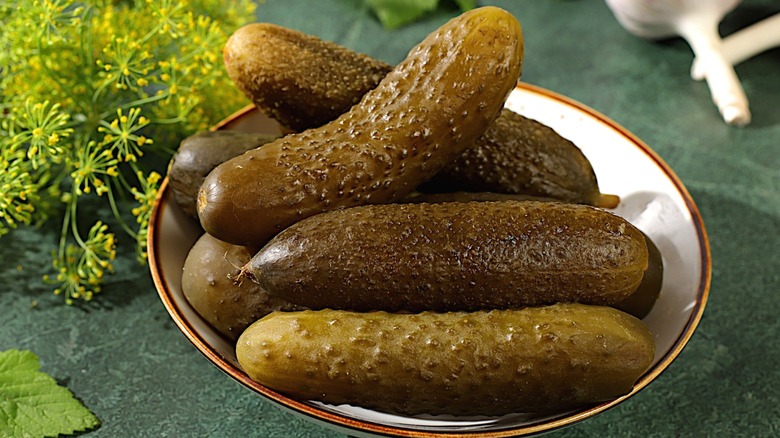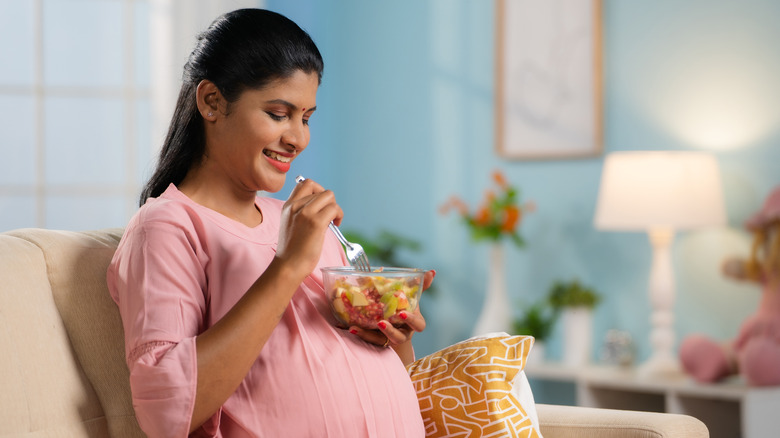The Reason Pregnancy Can Come With Pickle Cravings
If there were a "Family Feud" category asking you to name something that happens when you're pregnant, "cravings" would get you a resounding "good answer." Everyone knows that some pregnant people have intense cravings for certain foods. Precisely what foods differs from person to person. But going back to "Family Feud," if there were a follow-up category asking you to name a food pregnant people crave, "pickles" would be right at the top of the board. (If this is true for you, we suggest checking out our ultimate ranking of pickle brands.)
Why is that the case? Scientifically speaking, there isn't really a definitive answer. A popular myth is that pickle cravings are the body's way of telling pregnant people they need more sodium. However, pregnant people do not require more sodium than non-pregnant people. In fact, some organizations including the NHS even advise pregnant people to lower their sodium intake. Further debunking this myth is the fact that pregnant people don't often crave foods rich in other nutrients they need, like protein. In fact, a scientific paper published in The Quarterly Review of Biology found that pregnant people often develop aversions to protein-rich foods like eggs and meat.
Other people suggest pickle cravings are to do with changing hormone levels. This is backed up by anecdotal evidence from the transgender community. During transition, many trans women report intense pickle cravings, although these cravings are often linked to spironolactone, an anti-androgen that many trans women take, and not the increased levels of estrogen both trans women and pregnant people experience. Finally, a study published in Chemical Senses suggested that the heightened senses of smell and taste that occur during pregnancy might cause cravings.
Pregnancy cravings are affected by culture
It should be noted that not every pregnant person across the globe craves pickles. In fact, a study published in Frontiers in Psychology suggested that the types of food pregnant people desire might be influenced by their culture. For example, mangoes are known as a common pregnancy craving in Tasmania whereas pregnant Americans are much more likely to crave chocolate. To further complicate matters, cravings aren't necessarily limited to food, either: Many pregnant people report craving dirt or chalk, in a condition known as pica.
Some cultures have their own old wives' tales about what cravings might mean for the sex of the baby. Some say that pregnant people who crave salty foods, like potato chips or french fries, are more likely to give birth to a boy, while those who crave sweet foods are more likely to give birth to a girl. However, a study published in BMJ Open debunked this theory, proving there was no significant correlation between craving type and the sex of the child. So, while we all love talking about snacks, some people's insistence that all pregnant people crave pickles simply isn't true. Turns out pregnancy can unleash all sorts of food cravings, depending on who and where you are.

